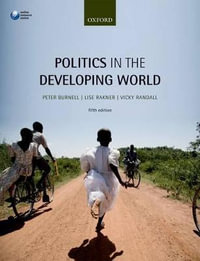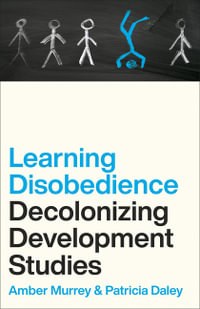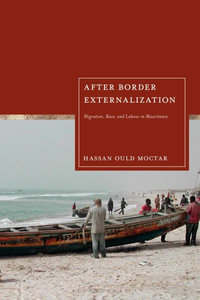This is an open access title available under the terms of a CC BY 3.0 IGO licence. It is free to read at Oxford Scholarship Online and offered as a free PDF download from OUP and selected open access locations. In recent years, typhoons have struck the Philippines and Vanuatu; earthquakes have rocked Haiti, Pakistan, and Nepal; floods have swept through Pakistan and Mozambique; droughts have hit Ethiopia, Kenya, and Somalia; and more. All led to loss of life and
loss of livelihoods, and recovery will take years. One of the likely effects of climate change is to increase the likelihood of the type of extreme weather events that seems to cause these disasters. But
do extreme events have to turn into disasters with huge loss of life and suffering? Dull Disasters? harnesses lessons from finance, political science, economics, psychology, and the natural sciences to show how countries and their partners can be far better prepared to deal with disasters. The insights can lead to practical ways in which governments, civil society, private firms, and international organizations can work together to reduce the risks to people and
economies when a disaster looms. Responses to disasters then become less emotional, less political, less headline-grabbing, and more business as usual and effective. The book takes the
reader through a range of solutions that have been implemented around the world to respond to disasters. It gives an overview of the evidence on what works and what doesn't and it examines the crucial issue of disaster risk financing. Building on the latest evidence, it presents a set of lessons and principles to guide future thinking, research, and practice in this area.
Industry Reviews
`Dull Disasters is a timely publication when the world needs to focus its resources, and communities facing natural disasters should be better prepared to face and bounce back from shocks. It is highly relevant to the IFRC with its network of 190 national societies whose volunteers form the last mile in community engagement. It rightfully shifts the discourse from counting how many we've reached to how few needs are left unmet thus making disasters dull.
The message of better preparedness, networking and more robust decision making and financial tools will help us achieve the resilience we need in communities.'
Dr. Jemilah Mahmood, Under Secretary General - Partnerships, International Federation of Red Cross and Red Crescent Societies
`With innovations in science and finance, making disasters 'dull' must be our aim. Shocks don't need to become full blown disasters, if we better anticipate and pre-plan for shocks, and reinforce local response capacity. The World Humanitarian Summit and what flows from it provide a key opportunity to make this happen.'
Stephen O'Brien, United Nations Under-Secretary-General for Humanitarian Affairs and Emergency Relief Coordinator, United Nations Office for Coordination of Humanitarian Affairs
`A thought-provoking book with a selection of excellent ideas for managing risks. For a country like Ethiopia subject to frequent drought the ideas on planning for and managing shocks in advance makes sense. Climate change makes it even more likely that the frequency of these shocks will increase in the future, and we need to plan for this. This kind of approach, linking the public and private sector in insuring and financing disasters, gives us much to
take and consider.'
Sufian Ahmed, Adviser to the Prime Minister of Ethiopia; Former Minister of Finance, Ethiopia
`This book is a timely and valuable contribution to an important global conversation on addressing risk and vulnerability. Disasters are becoming more severe and the impact of climate change - the ultimate threat multiplier - is exacerbating food insecurity, water scarcity, conflict and migration. In Dull Disasters, the authors offer a persuasive message: today's disasters need leaders who do not just respond emotionally and energetically to crises, but
leaders who use political, legal, and financial mechanisms that result in better preparedness.'
Gloria Grandolini, Sr. Director Finance and Markets Global Practice, The World Bank Group
`Countries have a great deal to gain from anticipating the use of a portfolio of financial instruments to improve their capacity to cope with disasters and manage catastrophic risks. Doing so requires careful diagnostics, design, experimentation, and evaluation. Yet, this is a vastly under-researched topic. In that perspective, the book makes a unique contribution to the literature by critically summarizing the current state of research on this issue and
constructing a research agenda. This will be most useful in guiding future research on the management of disaster risk and recovery.'
Alain de Janvry, Professor of Agricultural & Resource Economics, University of California at Berkeley
`Natural catastrophes are increasing in frequency and severity. What is more, the gap between economic and insured losses has remained stubbornly large. The consequences are especially severe in emerging and developing countries, which are both the worst hit and the least prepared. Tools exist to narrow that gap using innovative solutions that can help countries, cities and individuals preserve hard-won development gains even in the face of floods,
earthquakes, adverse weather and other setbacks. This book highlights a sensible way forward to make the world more resilient.'
Martyn Parker, Chairman Global Partnership, Swiss Re
`Given the increasing frequency and severity of natural disasters brought on by climate change and the stress of massive numbers of displaced people placed on all of society due to man-made disasters, planning for disasters is increasingly crucial for society. This book brings the needs, principles and processes together in a highly readable fashion. It is a must read for all policy makers and students of public, private, and non-government
institutions.'
Jerry Skees, H. B. Price Professor of Agricultural Policy and Risk, University of Kentucky
























